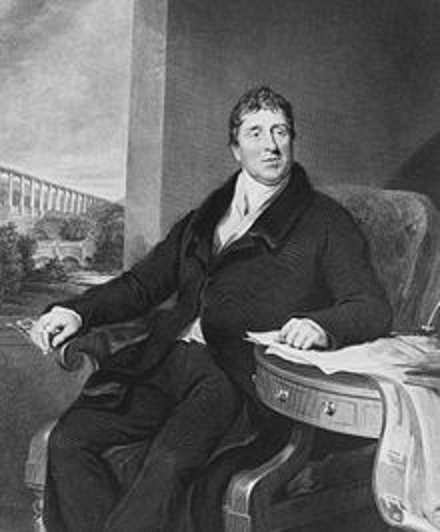Telford, an Engineering Entrepreneur Inspires Next Generation Thinkers
Written by Louise Keogh, Commercial Manager, nuron.
Are there any engineers with the potential to become great leaders for our infrastructure industries and drive the climate change agenda?
This was a question posed at a recent ICIF event I attended. Telford and Brunel were used as clear examples of not only engineers, but entrepreneurs who could take risks, who knew about design, financing, business, and the importance of interdependences between industry sectors to evolve superior engineering feats at a rapid pace.

Thomas Telford (Wikipedia) Inspires Engineering Entrepreneurs
For engineers, the ICIF message was 3-fold:
- climate change needs to be a part of all designs and solutions,
- take ownership of ideas and projects you believe in, even if they do not strictly fall within your remit; and
- change your mind-set to the same collaborative attitude that put Telford and Brunel ahead of others and the UK ahead of the rest of the world during the industrial revolution.
Why? Because organisations need individuals who are fearless in expressing opinions and taking leadership. Leaders need to work together to source multi-disciplined skill sets across industry; and industry needs to work on cross-sector collaboration for a faster route to more efficient, more intelligent and more sustainable infrastructure.
I like to think myself and my nuron colleagues are leading the way. We may not have the answer for a global revolution, but every revolution has to start somewhere. For the nuron team, having worked across water, oil and gas, telecoms and technology industries, we’ve amassed technical skills, commercial acumen, industry knowledge and have setup specialist partnerships to fast track solutions with climate change and cross-sector benefits.
The result? nuron fibre sensing technology is the only dual-purpose patented technology which provides a step change in sewer monitoring and has the potential to provide a digital backbone for the telecommunications and utilities sectors whilst enabling smart infrastructure and cities of the future. The ICIF confirmed what I knew already; a collaborative approach is next generation thinking and the only way forward.